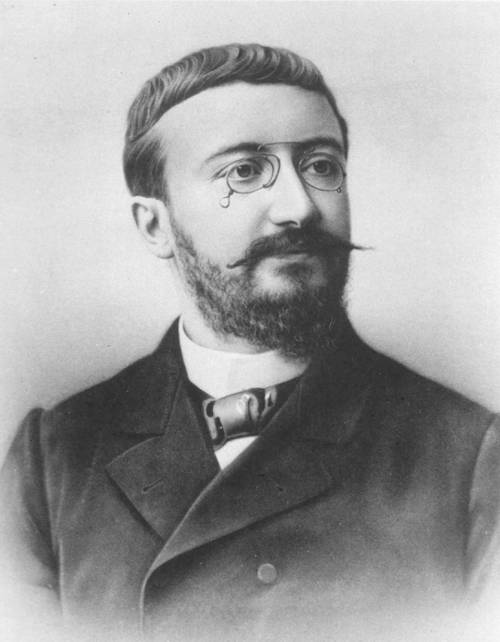
FAQ About Alfred Binet

Who was Alfred Binet?
Alfred Binet was a French psychologist born on July 8, 1857, in Nice, France. He is best known for developing the first practical intelligence test, known as the Binet-Simon scale, in collaboration with his colleague Théodore Simon. Binet's work laid the foundation for modern IQ testing and significantly influenced the field of educational psychology.

What is Alfred Binet best known for?
Alfred Binet is best known for creating one of the first intelligence tests, the Binet-Simon scale, in the early 20th century. This test was initially created to help identify children in the French education system who required specialized educational assistance. Binet's work has had a lasting impact on how intelligence is measured and understood.

What was the purpose of the Binet-Simon scale?
The Binet-Simon scale was developed to assess the intellectual development of children and identify those who might need special educational assistance. Introduced in 1905 by Alfred Binet and Théodore Simon, the test aimed to measure various cognitive abilities, including reasoning, problem-solving, and comprehension.

How did Alfred Binet's work impact education?
Binet's intelligence test provided educators with a tool to assess students' cognitive abilities systematically. This allowed for better identification of children who needed individualized help, thus fostering more tailored educational approaches. Binet's work laid the groundwork for educational assessments and special education programs seen today.

Why was the Binet-Simon scale significant?
The Binet-Simon scale was significant because it was the first scientifically developed intelligence test, providing a systematic way to measure cognitive abilities. It moved away from subjective methods of assessing intelligence, thus establishing a framework for future intelligence testing methodologies worldwide.

Did Alfred Binet believe intelligence was fixed?
No, Alfred Binet did not believe intelligence was a fixed trait. He acknowledged that intelligence could be influenced by various factors, including environment and education. He emphasized the malleability of intelligence, suggesting that with effective teaching strategies and a supportive environment, children's cognitive abilities could significantly improve.

What are some criticisms of Alfred Binet's work?
Some criticisms of Binet's work include the misuse or overreliance on the IQ scores derived from his tests, which some educators and psychologists misinterpreted as an unchangeable measure of a person's intellectual capacity. Binet himself warned against these interpretations, stressing the importance of understanding the complexities involved in intelligence.

How did Alfred Binet influence modern psychology?
Alfred Binet influenced modern psychology by pioneering a systematic approach to assessing human intelligence, which laid the groundwork for future psychological research and assessments. His introduction of the intelligence quotient (IQ) concept inspired further developments in cognitive psychology, educational assessments, and the understanding of learning disabilities.

What were the main components measured by the Binet-Simon scale?
The Binet-Simon scale measured various cognitive functions, including memory, attention, verbal skills, and problem-solving. It was designed to provide a composite picture of a child's intellectual abilities, making it easier to identify specific strengths and weaknesses that could be addressed in educational settings.

Did Alfred Binet work alone in developing the IQ test?
No, Alfred Binet collaborated with Théodore Simon, a fellow psychologist, to develop the IQ test known as the Binet-Simon scale. Their partnership was instrumental in creating a balanced and comprehensive assessment tool designed to identify children's cognitive abilities for educational purposes.

What is the difference between the Binet-Simon scale and modern IQ tests?
While the Binet-Simon scale was the first practical attempt to measure intelligence, modern IQ tests have evolved to include a broader range of subtests and statistical methodologies to ensure greater accuracy and reliability. Today, tests like the Wechsler Adult Intelligence Scale (WAIS) use complex statistical models, whereas the Binet-Simon scale was a more straightforward assessment.

How did Alfred Binet's view on intelligence differ from others of his time?
Alfred Binet's view on intelligence was progressive for his time, as he believed in the malleability and complexity of intellectual abilities. Unlike some contemporaries who argued that intelligence was solely a hereditary trait, Binet emphasized environmental influences and the potential for cognitive development through education and learning.

Did Alfred Binet's work receive support during his lifetime?
Yes, Alfred Binet's work received considerable attention and support during his lifetime, particularly from educators and psychologists interested in understanding children's cognitive development. The French government, recognizing the value of his intelligence test, officially endorsed the Binet-Simon scale to identify students who would benefit from specialized instruction.

What is the historical context behind the development of the Binet-Simon scale?
The historical context for developing the Binet-Simon scale was in early 20th century France, where there was a growing need to formalize education. The French Ministry of Education commissioned Alfred Binet to create a method to identify children who required alternative education strategies, leading to the development of their pioneering intelligence test in 1905.

What methods did Alfred Binet use in creating the Binet-Simon scale?
In creating the Binet-Simon scale, Alfred Binet and Théodore Simon used empirical observations and experimental methods. They conducted extensive research and testing with children of various ages, analyzing how they solved problems and processed information. The resulting test was based on observed behaviors and outcomes rather than theoretical assumptions.

Did Alfred Binet contribute to other fields aside from intelligence testing?
Yes, Alfred Binet made contributions to other fields of psychology, including experimental psychology and child psychology. He conducted research on suggestibility, memory, and the psychological differences between children and adults, thus enriching the understanding and development of these psychological domains.

What led to the creation of the Binet-Simon scale?
The creation of the Binet-Simon scale was prompted by a request from the French government, which needed a tool to identify children in the public school system who required special educational interventions. Alfred Binet and Théodore Simon collaborated to develop this revolutionary scale, marking the first systematic approach to measuring children's cognitive abilities.

Was the Binet-Simon scale used globally?
Yes, the Binet-Simon scale eventually gained international recognition and influenced intelligence testing worldwide. Adaptations and revisions of the original scale were made to suit different cultural contexts. In the United States, for instance, it was adapted into the widely used Stanford-Binet Intelligence Scales.

What was Alfred Binet's educational background?
Alfred Binet studied law at the University of Paris and later attended courses and lectures on psychology, physiology, and neurology. Despite not having a formal degree in psychology, his self-directed study and keen observations greatly contributed to his innovative work in developing intelligence tests and psychological research.

How have Binet's theories on intelligence been viewed over time?
Over time, Binet's theories on intelligence have been regarded as foundational in the field of cognitive testing and educational psychology. While his specific tests have evolved, his ideas about the multi-faceted nature of intelligence and the potential for growth remain influential. Researchers continue to build upon his work, reflecting ongoing advancements in understanding human cognitive abilities.
